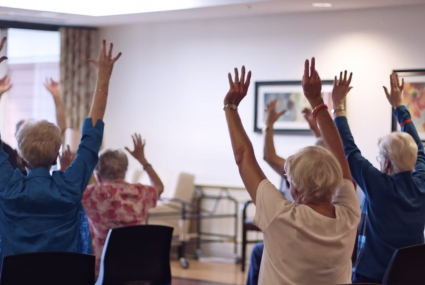Over 25 per cent of Canadians aged 75 and over live with diabetes. Unfortunately, it is a disease that becomes more prevalent as the years pass. Your body’s ability to produce and use insulin deteriorates as you age. So older adults are at an elevated risk of developing type 2 diabetes.
What is type 2 diabetes?
Glucose (sugar) is absorbed by the body through various foods like fruit, milk, potatoes, pasta and the hormone, insulin, is required to use and control the level of glucose in blood.
According to the Canadian Diabetes Association, “type 2 diabetes is a disease in which your pancreas does not produce enough insulin, or your body does not properly use the insulin it makes. As a result, glucose builds up in your blood instead of being used for energy.” Type 2 diabetes is commonly found in the later stages of life and largely caused by lifestyle decisions and choices like smoking, low-fiber, high-fat and sugary diet, and sometimes genetic influence.
It is more common than you think. Institute for Quality and Efficiency in Health Care finds that about 90 % of people who have diabetes have type 2 diabetes. If you are an older adult and suspect that you may have it, or have never been checked for it, get tested. A proper diagnosis and early treatment plan is so critical. If you leave diabetes untreated or poorly managed, it can lead to complications like heart disease, kidney disease, impotence and nerve damage.
You can’t beat it, but you can manage it
Although there is no cure to date for diabetes, medications help manage the disease. Gain the assistance of a professional, your family doctor, a specialist or pharmacist, and they will develop a regimen for you that will help you (or a caregiver) monitor and manage your insulin levels.
Put yourself to the test
The Public Health Agency of Canada has an online questionnaire called CANRISK. You can take it here.
It helps to identify your risk of developing type 2 diabetes. In just five minutes or less, you can get a rough idea of whether you are low risk or high risk for developing diabetes.
The test also includes valuable health tips for minimizing your risks. Actually, they are basic health guidelines you should be following anyway as a senior. Tips like eating fruits and vegetables, getting daily exercise, and maintaining a healthy BMI (Body Mass Index).
Are there risk factors?
Seniors wants to know: am I predisposed? Can I be doing something different to avoid it? The answer is: sometimes. There are genetic factors and lifestyle factors. Such as if you:
- Are Aboriginal, Hispanic, Asian, South Asian or African descent
- Have a parent or sibling with type 2 diabetes
- Have a history of gestational diabetes, pre-diabetes or complications due to diabetes (eye, nerve or kidney problems)
- Have heart disease, high blood pressure or high cholesterol
- Are overweight (especially around the abdomen)
If any of these conditions are present for you, it’s a good idea to get checked by an endocrinologist as soon as possible. Again, the sooner get it diagnosed, the more time you have to improve your health.
If you receive care from a loved one or care specialist, make sure they know what your treatment is exactly.
A doctor may prescribe diabetes medicines to help control blood glucose levels. There are many kinds of medication available specifically for older adults with diabetes. Your doctor will choose the best treatment based on the type you have, your everyday routine, and other health problems.
Author Debbie Santos, RPh is the National Director of Clinical Pharmacy Services for Remedy’sRx Specialty Pharmacy. Remedy’sRx Specialty Pharmacy provides specialized services to seniors in residential settings.

Comments